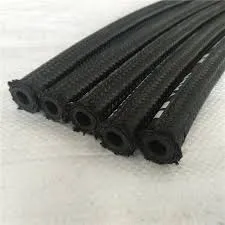Nov . 29, 2024 14:09 Back to list
Flexible Metal Hose Exporters with CE Certification for Quality Assurance and International Trade
The Importance of CE Certification for Flexible Metal Hose Exporters
In today's rapidly evolving global marketplace, compliance with international standards has become a pivotal consideration for exporters in various industries. Among these, the flexible metal hose industry holds a significant place, catering to a variety of applications, from the automotive and aerospace sectors to the chemical processing and energy industries. One essential certification that has emerged as a benchmark for quality and safety in this field is the CE marking.
Understanding CE Certification
CE certification, short for Conformité Européenne, serves as a declaration that a product meets the safety, health, and environmental protection standards required by European Union (EU) legislation. For products exported to EU countries, having the CE mark is often a legal requirement, making it imperative for exporters to understand its implications. This certification signifies that a product is compliant with EU directives, thus enabling easier access to the European market.
For flexible metal hose manufacturers and exporters, obtaining CE certification involves rigorous testing and documentation processes to ensure that their products can withstand varying pressures, temperatures, and corrosive environments. Flexibility and durability are critical attributes for metal hoses, and CE certification helps assure customers that these products can perform safely and effectively under a wide range of conditions.
Advantages of CE Certification for Exporters
1. Market Access For exporters seeking to penetrate the European market, CE marking is crucial. Products without certification often face barriers to entry and can be subject to withdrawal from the market if they do not comply with applicable regulations.
2. Consumer Confidence CE certification enhances consumer trust in the product. Customers are increasingly inclined to purchase equipment that carries the CE mark, as it is a clear indication of safety and quality. This can lead to increased sales and improved brand reputation.
3. Competitive Advantage In a crowded marketplace, being able to showcase CE certification can set a company apart from its competitors. It highlights a commitment to quality and compliance that many customers value, particularly in industries where safety is paramount.
4. Risk Mitigation By adhering to international standards, exporters can mitigate the risk of litigation and financial losses associated with product failures. CE certification ensures that products are thoroughly tested and validated, reducing the chances of recalls or safety breaches.
ce certification flexible metal hose exporters

5. Facilitated Trade With CE certification, exporters can streamline their logistics and paperwork. Customs authorities are more likely to accept products that have been certified, reducing delays associated with additional inspections or customs clearance.
The Certification Process
The path to obtaining CE certification for flexible metal hoses typically involves several important steps
1. Identify Relevant Directives Exporters must determine which EU directives apply to their products. For flexible metal hoses, the Pressure Equipment Directive (PED) is most commonly relevant.
2. Conduct Risk Assessment A thorough risk assessment should be performed to identify potential hazards associated with the product's use. This is crucial in ensuring that the product meets all relevant safety standards.
3. Testing and Documentation Products are subjected to rigorous testing by accredited laboratories to ensure compliance with directives. Comprehensive documentation is then compiled to demonstrate conformity.
4. CE Marking Once testing is complete and compliance is verified, exporters can affix the CE mark to their products, allowing them to market and sell their hoses within the EU.
5. Ongoing Compliance It is essential for exporters to maintain compliance with EU regulations even after certification. Regular audits and quality checks help ensure that products continue to meet the required standards.
Conclusion
In conclusion, CE certification is not merely a bureaucratic hurdle; it is a vital aspect of exporting flexible metal hoses to the European market. By obtaining this certification, exporters not only comply with legal requirements but also enhance their marketability, foster consumer confidence, and mitigate risks. As global trade continues to grow, adherence to recognized standards like CE marking will remain a cornerstone for success in the competitive landscape of flexible metal hose manufacturing and exporting. Embracing this responsibility ultimately leads to better products, satisfied customers, and sustainable business growth.
-
Best Four Steel Wire Spiral Hose Hydraulic R12 – Durable High-Pressure Hose Manufacturer
NewsJul.08,2025
-
High-Quality 1/4 Hydraulic Hose – Soft, Flexible & Durable Rubber Hoses for Industrial Use
NewsJul.08,2025
-
1 1 2 Inch Hydraulic Flexible Hose - Durable, Reliable, High-Pressure Solutions
NewsJul.07,2025
-
High-Quality 1 2 Rubber Hose - Durable, Flexible Hydraulic Solutions
NewsJul.07,2025
-
Discover SAE Hydraulic Hose Types - High Quality & Durable Hoses from Leading Factory Supplier
NewsJul.06,2025
-
High Pressure Wire Hydraulic Rubber Hose Supplier Durable & Reliable 1SN Hose Solutions
NewsJul.06,2025
